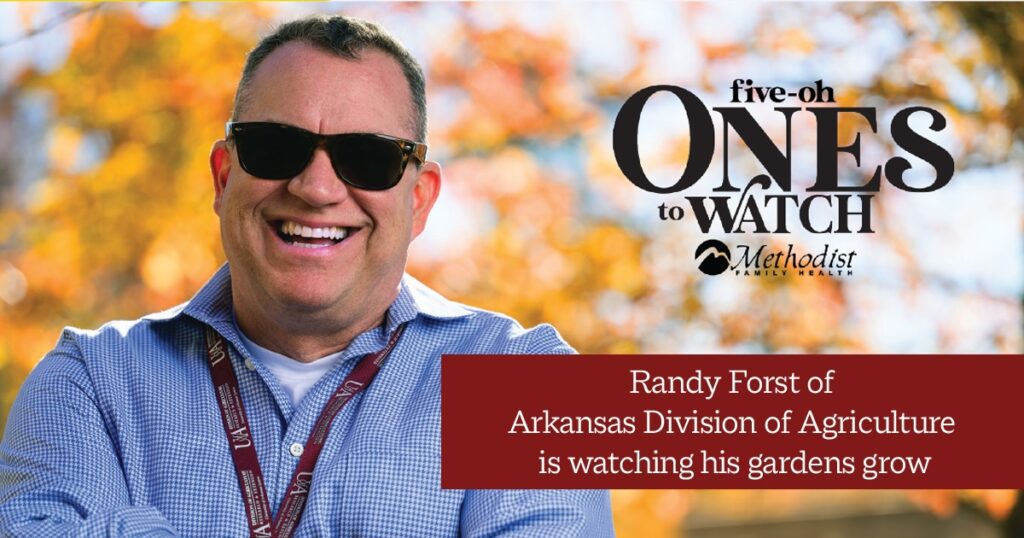30 Dec 2023 Randy Forst of Arkansas Division of Agriculture is watching his gardens grow
With the mantra “Go Forth and Grow,” Randy Forst provides knowledge and support for horticulture in Arkansas. Named the Consumer Educator and Master Gardener Coordinator for the University of Arkansas Division of Agriculture (UADA), Forst has taken his background and education to a new level of success.

Forst grew up in rural Logan County on a diversified family farm. This exposure to all things agriculture gave him the ideal background for the Extension Service. As one of 11 kids, the family grew vegetables to feed the family. His mentors were his parents, grandparents and a special Aunt “Dokie” (Gertrude) who encouraged his interest in fruit trees and ornamentals as well as vegetables.
Armed with degrees in horticulture and general agriculture from the University of Arkansas, he honed his skills in the private sector. According to Forst, it did not take long to see the light. He was much more suited to the education world, a 15-year path that would take him to his current job. He is the embodiment of the UADA mission. In Forst’s words, “It is all about reaching out and strengthening agriculture and families with trusted research-based information. It is doing whatever we can to help them help themselves.”
His job includes working with County Extension Agents as their resource for all things horticulture, from homeowners with questions about flowers, vegetables and fruit trees to full-time ornamental and vegetable farmers with questions about plant diseases and insects. Horticulture is big business in Arkansas. The latest statistics from the Census for Nursery Green Industry for Arkansas list the market value of nursery products at more than $45 million a year. Forst credits COVID’s influence for increased interest in gardening and home landscape.
His most visible job is coordinating Arkansas’s Master Gardener program. He quickly credits Janet Carson for its beginning 35 years ago and its exponential growth. “Forst is perfect for this job,” said Carson, emeritus extension horticulture specialist. “His personality and energy suit him for taking this volunteer group to a new level.”
What Carson began with a pilot project in four counties now boasts more than 4,000 members in 63 counties. The program links a network of gardeners through training and working on projects around the state. Their projects are legion: running plant clinics, answering phone questions and establishing and maintaining demonstration gardens. Their handiwork is visible on many public building landscapes and is denoted with signage to identify official Master Gardener projects.











